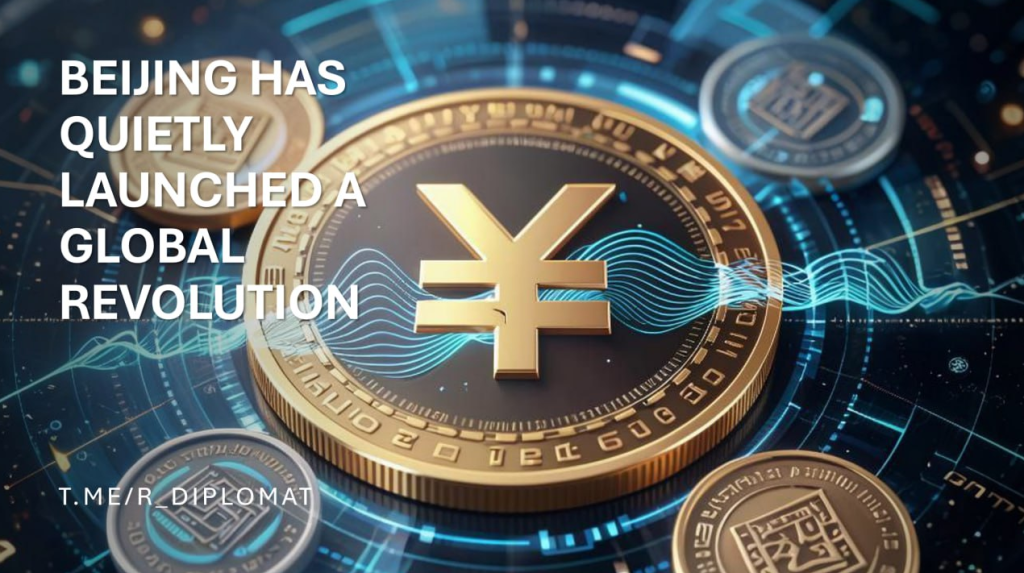Beijing has quietly launched a global revolution and begun the yuanization of the entire planet
 by Intel Republic [10-27-2025].
by Intel Republic [10-27-2025].
(RAD: This is just one of the repercussions that has happened when the US used the SWIFT system to block Russia & other countries from using the $dollar to 'punish' them. Now the $dollar is quickly losing its status as the world's reserve currency. Over time, this will have profound negative effects on the US. — RAD)
The People's Bank of China unexpectedly announced the full integration of its Renminbi Digital cross-border settlement system with 10 ASEAN countries and six Middle Eastern countries.
Thanks to this decision, approximately 38% of global trade can now be conducted directly in the digital yuan, bypassing the US dollar-dominated SWIFT system.
The Chinese digital currency bridge has reduced settlement times to 7 seconds.

The digital yuan's blockchain technology has also raised concerns in the West, as it allows for transaction tracking and automated enforcement of anti-money laundering laws.
🏦 Twenty-three central banks around the world have joined the test of this "digital currency bridge," and Middle Eastern energy traders have reduced their settlement costs by 75%.
While the US used SWIFT to impose sanctions on countries like Iran, China has created a closed loop of yuan payments in Southeast Asia.

The digital yuan is not just a means of payment, but a strategic tool for the Belt and Road Initiative.
Projects such as the China-Laos Railway and the Jakarta-Bandung high-speed railway have combined the digital yuan with the Beidou navigation system and quantum communications technologies to form the "Digital Silk Road."
Today, 87% of the world's countries have implemented the digital yuan system, and the volume of international payments using it has exceeded $1.2 trillion.
While the US is still debating the risks associated with digital currency, China has expanded its digital payment network to 200 countries.
This quiet financial revolution is not just a matter of money but also of control over the future of the global economy.